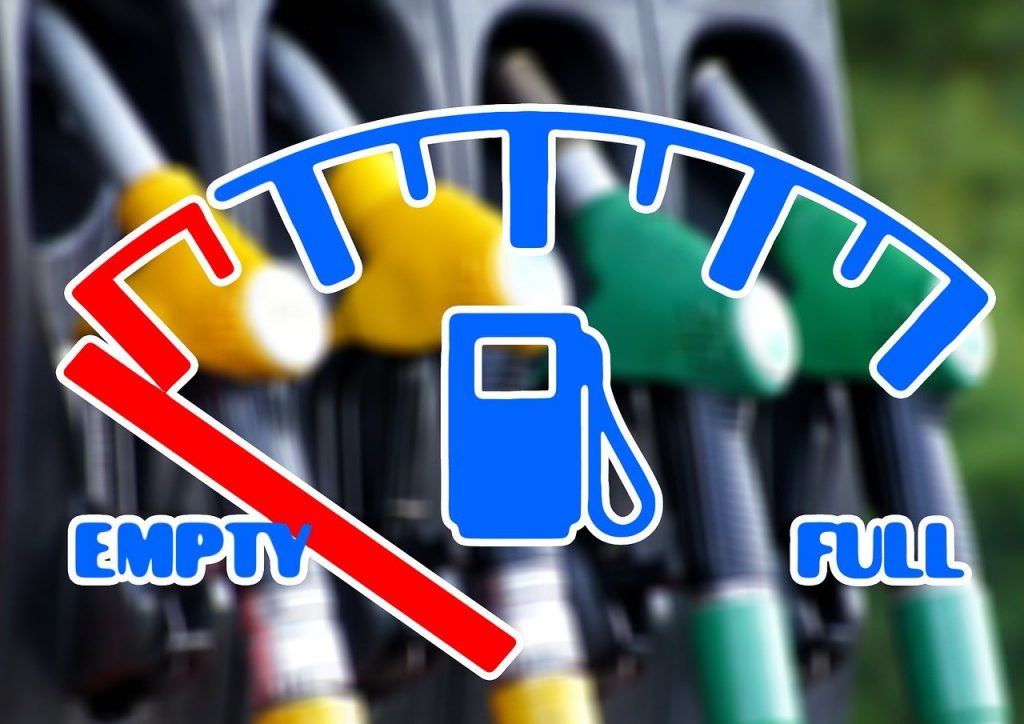Following recent panic buying, the government is suspending competition law so oil firms can target fuel deliveries at petrol stations.

The move will make sharing information easier for companies, allowing them to prioritise the areas of the country that are most in need.
The last few days have seen long queues at fuel pumps, after fears of disruption to supplies prompted people to panic buy.
However, ministers say there are currently no plans to bring the Army in to drive tankers. The government did consider it, but according to Environment Secretary George Eustice, the driver shortage is “not a huge problem”. Mr Eustace says the “only reason” there isn’t enough petrol at the stations is because of people buying it when they don’t need to. He predicts that things will “calm down” when anxious people have filled their cars.
There is a total of over 8,000 filling stations in the UK. The Petrol Retailers Association (PRA) warns that around two-thirds of its near 5,500 independent outlets have run out of fuel. While the rest of its members are “partly dry and running out soon”.
In response, the government has announced bringing in measures to give the oil industry exemption from the Competition Act 1998. Business Secretary Kwasi Kwarteng says the government has “long-standing” contingency plans to keep up fuel supply.
Allowing the industry to share information means that companies can easily work together to help minimise disruption.
The government took a similar step in March 2020 by relaxing competition law so supermarkets could work together effectively to maintain food supplies.
The lorry driver shortage
In recent months, a lorry driver shortage has caused problems for a number of industries, including supermarkets and fast food chains. A lack of delivery drivers has resulted in disruption to supplies and stock. In recent days, the issue has affected fuel deliveries in some places. This led to people panic buying and causing long queues at petrol stations.
However, fuel companies insist that pressures on supply are caused by “temporary spikes in customer demand – not a national shortage of fuel”. Brian Madderson, chairman of the PRA, also agrees that the shortages are due to “panic buying, pure and simple”.
Oil companies are prioritising supplies at motorway service stations, so it is mostly pumps in urban areas of Britain that are running dry. Although Northern Ireland are currently unaffected. They are restocking pumps at filling stations, but there are not enough deliveries to restore fuel levels to normal. For example, one outlet who received a tanker at midday had it all completely gone by late afternoon.
An announcement on Saturday claimed the government would offer temporary visas to 5,000 foreign fuel and food drivers, and 5,500 poultry workers. The visas will last until Christmas Eve, to help limit disruption in the build up to the festive period. However, it will take further days or weeks for these applications to open.
The government is also sending letters to near one million drivers who have an HGV licence, to encourage them to return to the industry. Measures for more HGV drivers also include plans to train 4,000 new people into the profession.
The key thing now is making the work attractive to drivers, which most likely means offering good wages.
Since the second quarter of 2019, the UK has lost 72,000 drivers. Brexit is partly to blame as it has led people to return to the EU. But the coronavirus pandemic has also played its part. Disruption to tests have delayed people from getting their HGV licence, making it more difficult to replace the number of drivers lost. There are currently around 54,000 applications for licences awaiting processing by the DVLA.
What is competition law?
The aim of competition law is to ensure businesses all compete fairly on a level playing field. It helps to protect firms and benefit consumers.
Competition encourages companies to innovate and improve in order to entice customers, meaning products are often better or at lower prices.
Businesses cannot make agreements with each other, like fixing prices or limiting production, that would distort competition and leave customers worse off. Doing any of these practices would break competition law. Breaching the law could result in hefty fines, bans from running companies, or in some cases, jail.
The government has intervened during the pandemic to exclude particular industries from elements of competition law. For example, at the height of the Covid crisis, supermarkets could share more information with each other on stock levels. They were also allowed to share depots and delivery vehicles to help meet demand from customers.
The latest move will enable fuel suppliers to share details on which locations most need stocking.
Thank you for reading Competition Law suspended in UK to help get petrol supplies to forecourts

Looking for additional living space or somewhere quiet to work from home? Look no further – Log cabins at affordable prices.